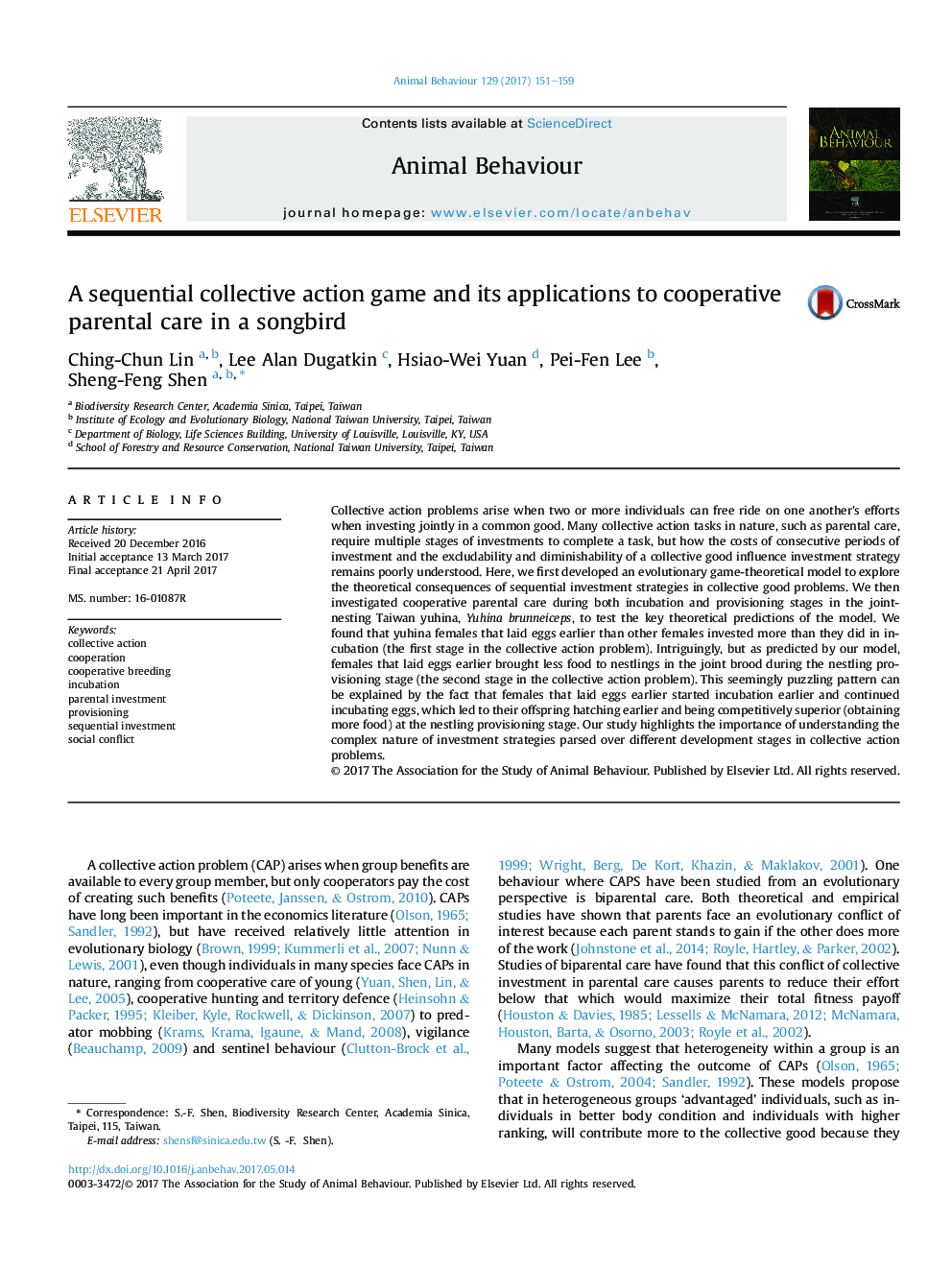| Article ID | Journal | Published Year | Pages | File Type |
|---|---|---|---|---|
| 5538489 | Animal Behaviour | 2017 | 9 Pages |
Abstract
Collective action problems arise when two or more individuals can free ride on one another's efforts when investing jointly in a common good. Many collective action tasks in nature, such as parental care, require multiple stages of investments to complete a task, but how the costs of consecutive periods of investment and the excludability and diminishability of a collective good influence investment strategy remains poorly understood. Here, we first developed an evolutionary game-theoretical model to explore the theoretical consequences of sequential investment strategies in collective good problems. We then investigated cooperative parental care during both incubation and provisioning stages in the joint-nesting Taiwan yuhina, Yuhina brunneiceps, to test the key theoretical predictions of the model. We found that yuhina females that laid eggs earlier than other females invested more than they did in incubation (the first stage in the collective action problem). Intriguingly, but as predicted by our model, females that laid eggs earlier brought less food to nestlings in the joint brood during the nestling provisioning stage (the second stage in the collective action problem). This seemingly puzzling pattern can be explained by the fact that females that laid eggs earlier started incubation earlier and continued incubating eggs, which led to their offspring hatching earlier and being competitively superior (obtaining more food) at the nestling provisioning stage. Our study highlights the importance of understanding the complex nature of investment strategies parsed over different development stages in collective action problems.
Keywords
Related Topics
Life Sciences
Agricultural and Biological Sciences
Animal Science and Zoology
Authors
Ching-Chun Lin, Lee Alan Dugatkin, Hsiao-Wei Yuan, Pei-Fen Lee, Sheng-Feng Shen,
